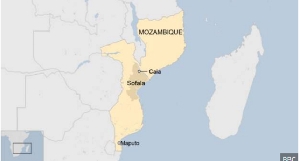- Home - News
- TWI News | TV
- Polls
- Year In Review
- News Archive
- Crime & Punishment
- Politics
- Regional
- Editorial
- Health
- Ghanaians Abroad
- Tabloid
- Africa
- Religion
- Election 2020
- Coronavirus
- News Videos | TV
- Photo Archives
- News Headlines
- Press Release
Business News of Thursday, 20 October 2016
Source: B&FT
Cheap fuel draws foreign airlines to Accra
An increasing number of foreign airlines are lifting aviation fuel from Accra, following a reduction in the price of the commodity from about US$3.14 per gallon to about US$2.33 per gallon.
The reduction, announced by the National Petroleum Authority (NPA) in August, makes the price of the commodity very competitive as compared to prices in neighbouring West African countries like Nigeria, Benin, and Senegal.
Prior to the reduction in the price of Aviation Turbine Kerosene (ATK), otherwise known as aviation fuel, the price in Ghana was the highest in the sub-region.
While the specialised fuel was sold for about US$2.30 cents per gallon in Nigeria, US$2.30 in Benin and US$1.94 cents per gallon in Cameroon, it was sold for about US$3.14 cents per gallon in Ghana.
Economic challenges in West Africa’s largest economy Nigeria, has further dampened the demand for the commodity in the continent’s most populous country. Airlines, such as Emirates, have jettisoned their normal fuel lifting routine in Nigeria in favour of cheap aviation fuel in Ghana.
Reuters reported yesterday that foreign airlines flying to Nigeria have started to refuel abroad because jet fuel supplies there have become more expensive and scarce as the country battles a hard currency shortage.
The report noted that Emirates has started a detour to Accra, Ghana to refuel its daily Abuja-bound flight. The airline had already cut its twice-daily flights to Lagos and Abuja to just one.
Emirates’ President, Tim Clark, is quoted by Reuters as saying that the airline may suspend service to some countries on the continent owing to the difficult operating environment in those countries.
"In certain African countries, the currencies have really gone down, so we're reflecting on a number of these to look at where it's just not worth for us to travel,” he said.
Challenges in Nigeria, which is Africa’s largest economy and influential trading partner of other countries in the sub-region, may have a ripple effect in the sub-region.
Inflation rate has increased from about 9.2 per cent in 2015, to about 18 percent in September 2016, the highest in the oil-rich country since October 2005.
It has also posted negative growth for two consecutive quarters. Compounding the problem is the volatility in the exchange rate; a large disparity exist in the inter-bank and market rates despite a raft of foreign exchange regulation by the country’s central bank.











